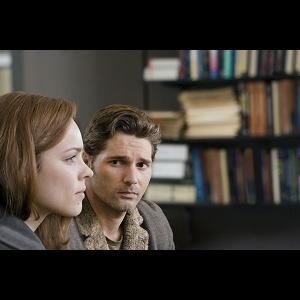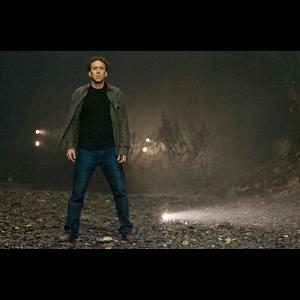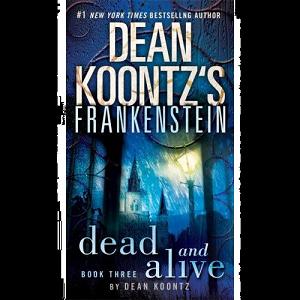Mini-Reviews 8/31/09
HARRY POTTER AND THE HALF-BLOOD PRINCE
(Movie)
|  This picture makes me feel dirty and uncomfortable, which is why I share it with you
This picture makes me feel dirty and uncomfortable, which is why I share it with you |
HARRY POTTER AND THE HALF-BLOOD PRINCE
(Movie)
|  This picture makes me feel dirty and uncomfortable, which is why I share it with you
This picture makes me feel dirty and uncomfortable, which is why I share it with you |
In the interests of full disclosure, before I went to see Harry Potter and the Half-Blood Prince, I thought Prisoner of Azkaban was the best Harry Potter movie while Order of the Phoenix was the worst (a particularly heart-breaking admission, since Order of the Phoenix is my favorite Harry Potter book). Therefore, going in to see the latest movie directed by David Yates, my expectations were low.
However, this adventure shines much brighter than its sloppy predecessor. The editing is more logical, the actors are more comfortable in their roles (most notably Tom Felton, who steps up to the plate in a big way, and Evana Lynch, the young actress who plays Luna Lovegood), and the pace is just slow enough to allow the story to blossom. There are a few minor problems, like the obviously tacked-on and completely meaningless action scene halfway through the movie and the failure to explain much about the title of the movie, but these don't take away from the overall fun of the film.
Fans of the previous Harry Potter films will undoubtably enjoy this installment, and it succeeds in setting the stage and building anticipation for the upcoming finale.
THE TIME TRAVELER'S WIFE
(Movie)
|  One out of one time travelers agree: books are better
One out of one time travelers agree: books are better |
HARRY POTTER AND THE HALF-BLOOD PRINCE
(Movie)
|  One out of one time travelers agree: books are better
One out of one time travelers agree: books are better |
While The Time Traveler's Wife captures the essence of the novel upon which it is based, the movie feels slightly antiseptic. One has to forgive omissions and alterations when a novel is adapted to the big screen, but there are so many here that much of what makes the book so interesting is lost.
The book takes a simple--albeit wildly implausible--premise and expands upon it with as much simple logic as possible, and the story comes out of this treatment in a satisfyingly organic way. Unfortunately, the film, by omitting many of the strange possibilities and situations presented in the book, becomes little more than a tense romantic comedy that just happens to include some time travel. The movie rarely shows the two protagonists during happy times, and one has to wonder why they are in love when they spend three quarters of the movie in awkward angst and bitter displeasure.
On the positive side, however, Eric Bana and Rachel McAdams nail their characters with a heightened sense of realism and nuanced humanity that carries the movie. Through it all, there are moments in the film that will probably make your eyes water, and the emotional core of the story remains intact. Those who haven't read the book might find it hard to accept the premise as quickly as the movie demands, but will otherwise find little to complain about. However--and I know it's cliche to say it--the book is definitely better.
KNOWING
(DVD)
|  That's it, Nick, look pensive and intense, like you're staring at a mosaic of your entire film career in flames!
That's it, Nick, look pensive and intense, like you're staring at a mosaic of your entire film career in flames! |
KNOWING
(DVD)
|  That's it, Nick, look pensive and intense, like you're staring at a mosaic of your entire film career in flames!
That's it, Nick, look pensive and intense, like you're staring at a mosaic of your entire film career in flames! |
Alex Proyas is a great director. His previous films--The Crow, Dark City, and I, Robot--are excellent examples of what the man can do and reason enough to look forward to whatever he does next. And despite the terrible reviews for his latest work, Knowing, and the unfortunate decision to cast Nicolas Cage in the leading role, I rented the film on DVD expecting to find something worth loving about it.
There's no way to write it kindly: Knowing is a messy and painfully awful film. It starts out well enough, the premise in intriguing, the theme is clearly identified with a deep but subtle philosophical argument, and there is a nice tone of dread and weirdness on par with the best M. Night Shyamalan film. This all comes to a crashing halt, though, when the story asks you to accept several exceedingly ludicrous coincidences (which aren't helped by substandard visual effects). And the end... Oh, dear God, the end... So that you don't accidentally watch this movie, I'm going to spoil the ending for you. The world really is coming to an apocalyptic end, but psychic aliens want to retrieve a few special people first, including Nick Cage's troubled son. Cage can't go, of course, because he's not special enough, so he gets to watch the world burn.
But it's not just the ridiculously bad story that demolishes this movie. There is the aforementioned decision to cast Nicolas Cage. I don't hate Mr. Cage, and there are many of his movies that I really like (the National Treasure movies, Leaving Las Vegas, Raising Arizona, Lord of War, and Matchstick Men, among others). Still, he is not what I would call a stellar actor, and in a role that is supposed to be subtle and meaningful, he falls flat on his over-acting ass. This is what happens in Knowing.
And it's not just Nicolas Cage. Alex Proyas falls on his ass, too, and it is hard to express how disappointing that is. There is hope, though, because every great director has a bad movie (just as every bad director has a good movie). Here's hoping that, now that Alex Proyas has gotten his bad movie out of his system, he can make another masterpiece on par with Dark City.
DEAN KOONTZ'S FRANKENSTEIN: BOOK THREE: DEAD AND ALIVE
(Novel)
|  Cover
Cover |
DEAN KOONTZ'S FRANKENSTEIN: BOOK THREE: DEAD AND ALIVE
(Novel)
|  Cover
Cover |
The first two installments of Dean Koontz's Frankenstein, released in 2004 and 2005, are an imaginative re-examination of Mary Shelley's Frankenstein (a book that holds the distinction of first science-fiction novel). They chronicle the tale of two New Orleans detectives as they uncover a mind-bending truth, that Dr. Victor Frankenstein is not only real but still alive, along with his infamous monster, who is now a peaceful creature going by the name of Deucalion. The second novel ends on a large cliff-hanger, with climactic forces coming together, Dr. Frankenstein's evil plot to conquer the world with genetically engineered superhumans slipping into terrible chaos, and a hurricane heading straight for New Orleans.
As Dean Koontz was writing the third and final installment, an unfortunate thing happened: a hurricane really did hit New Orleans. Fearing that publishing a fictional book about such a disaster immediately after the real thing would be tactless, Mr. Koontz wisely reworked the book and waited four years to publish it. Now that it's finally been released, one has to ask, has it been worth the wait?
On the plus side, the ride is up to Dean Koontz's standard you-don't-dare-put-it-down style. If you liked the first two books, there is almost no chance you will dislike this one. Also, you don't have to go back and reread the previous books to refresh your memory; Koontz does an excellent job putting you right where you left off while simultaneously giving you just enough recap to never feel lost. On the negative side, though, it is obvious that Koontz had to shift the focus of the plot two-thirds of the way through. There are nearly a dozen different plot threads going on simultaneously (not uncommon for Koontz), but many of them seem to end quickly and unceremoniously. Without giving too much away, even the main plot seems to tie itself up a little too neatly.
Therefore, while it is a fun book and good escapist entertainment, it's hard not to feel at least a little disappointed. Four long years of waiting don't help, either.
THE YEAR OF LIVING BIBLICALLY
(Book)
|  If you saw this man wandering the streets of New York City, now you know who the hell he thinks he is
If you saw this man wandering the streets of New York City, now you know who the hell he thinks he is |
THE YEAR OF LIVING BIBLICALLY
(Book)
|  If you saw this man wandering the streets of New York City, now you know who the hell he thinks he is
If you saw this man wandering the streets of New York City, now you know who the hell he thinks he is |
A.J. Jacobs, a neurotic New York writer, spent an entire year attempting to follow the Bible as literally as possible so that he could publish a book about the experience. It's easy to think that Jacobs is being disrespectful, antagonistic, or just an asshole toward religion, but he is such an unoffensive and thoughtful person that it never comes across that way.
The Year of Living Biblically is actually a fascinating read that never pokes fun or insults. Jacobs is a skeptical agnostic, but he goes into his experiment with an impossibly open mind. There are many surprises along the way, and as he points out in the introduction, the experience has definitely changed him in some meaningful ways.
Yes, he spends much of the book talking about arcane religious guidelines like wearing clothes made from a single material, not touching a woman for ten days following her "woman time," and such, but for every one of these seemingly stupid Biblical rules, he seeks out and finds people who follow it. He gets spiritual guidance from Jews and Christians alike, and he forms good relationships--even friendships--out of them. At one point, he even goes to Israel.
It's a damn good book. Not only is it a good (and surprisingly deep) examination of the Bible, but it is an exploration of the relevance of Judeo-Christian ideas in modern culture. It's not a book that will convert the faithless or disillusion the faithful; it's just an incredibly honest look at one man's journey to find Judeo-Christian spirituality. Regardless of your religious inclinations, I recommend this book as highly as possible.
-e. magill 08/31/2009
|
|